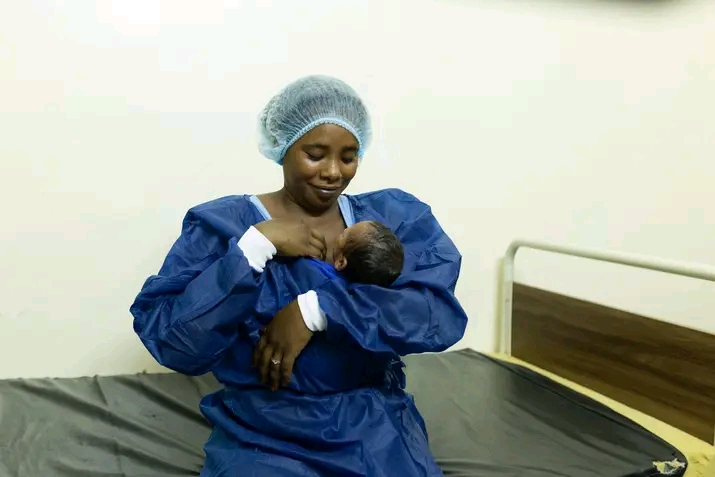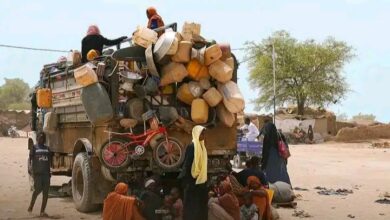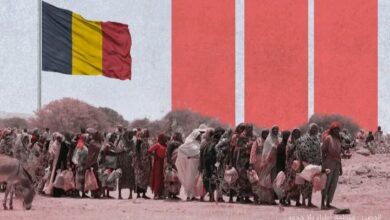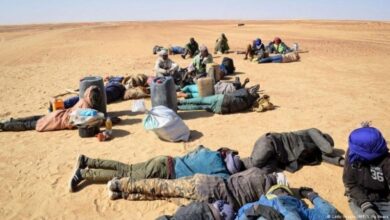Sudan’s Children: Born in War Without Identification or Legal Papers
Omdurman – Report by Bakhita Zayed Al-Safi

Since the outbreak of war between the Sudanese army and the Rapid Support Forces (RSF) on April 15, 2023, thousands of children have been born amid dire humanitarian conditions and numerous challenges. One of the most pressing issues is the absence of documentation to prove their existence due to the shutdown of hospitals and health centers in conflict zones—and even in some relatively safe cities—during the initial months of the war. Hundreds of families have been unable to obtain essential documents such as birth certificates or vaccination cards.
For more than two years, hundreds of mothers were forced to give birth in shelters and displaced persons’ camps, losing access to official papers and legal recognition.
These “children of war” face an uncertain future, deprived of education and healthcare, and at risk of losing their right to citizenship—one of the gravest consequences of armed conflict.
Without Identity
Kaltoum Abdullah told Mashawir platform that she “was forced to deliver her first child in a displacement shelter in Kosti, South Sudan, under extremely harsh humanitarian conditions. Despite the pain of displacement and the hardships of exile, she was overjoyed by the birth of her first child.
‘What truly breaks my heart,’ she added, ‘is that my baby still has no legal papers or birth certificate, and therefore no one legally recognizes him. It is deeply painful.
‘I still hold on to hope that I can eventually secure identification papers, especially since I encountered many difficulties when trying to start his vaccination schedule, as I have no proof of his identity.’”
Deprived of Rights
Child rights activist Aza Khidr told Mashawir that “the absence of a birth certificate does not mean the child does not exist; rather, it strips the child of an entire chain of rights. Without it, children cannot receive official vaccinations, enroll in school, or, in some cases, receive medical treatment at hospitals that require legal documents.
“There are even cases where later registration of a child is denied due to the absence of witnesses or official documentation from the midwife who supervised the birth.
“This persistent situation risks turning into a national crisis, with an entire generation of children being classified as stateless, even though they were born in their own homeland. With the collapse of state institutions, the simple piece of paper that proves a child’s birth has become an unattainable luxury for many.
“Over time, the temporary absence of identity becomes a permanent problem that haunts a child for life.”
Addressing the Issue
Social researcher Suleiman Fadl noted that “many war children were born in shelters, and thousands are growing up deprived of their most basic rights, especially legal recognition of their existence.
“These children were born amid war, displacement, and poverty, with no documents to prove their identity, leaving them invisible to state institutions.
“The current situation demands the creation of a national mechanism to register children retroactively, to prevent further collapse of the social structure.
“This generation of children without identity represents a ticking social time bomb if urgent measures are not taken to regularize their legal status.”
Mechanisms and Solutions
Human rights lawyer and activist Tarek Mahjoub told Mashawir that “as the war drags on, Sudan faces a generation at risk of being denied all fundamental rights. The problem is not only legal but deeply humanitarian.
“He urged the government and civil society organizations to take swift action to resolve the status of these children by providing exceptional mechanisms to establish parentage.
“He stressed the importance of ensuring that the process does not get mired in legal and bureaucratic complexities: ‘Procedures for legal recognition must be simplified, courts reactivated, and special solutions provided for children of unknown parentage or with missing fathers or mothers. These children must be spared a lifetime of marginalization. They did not choose to be born without documents—they were simply born at the wrong time and place.’”




